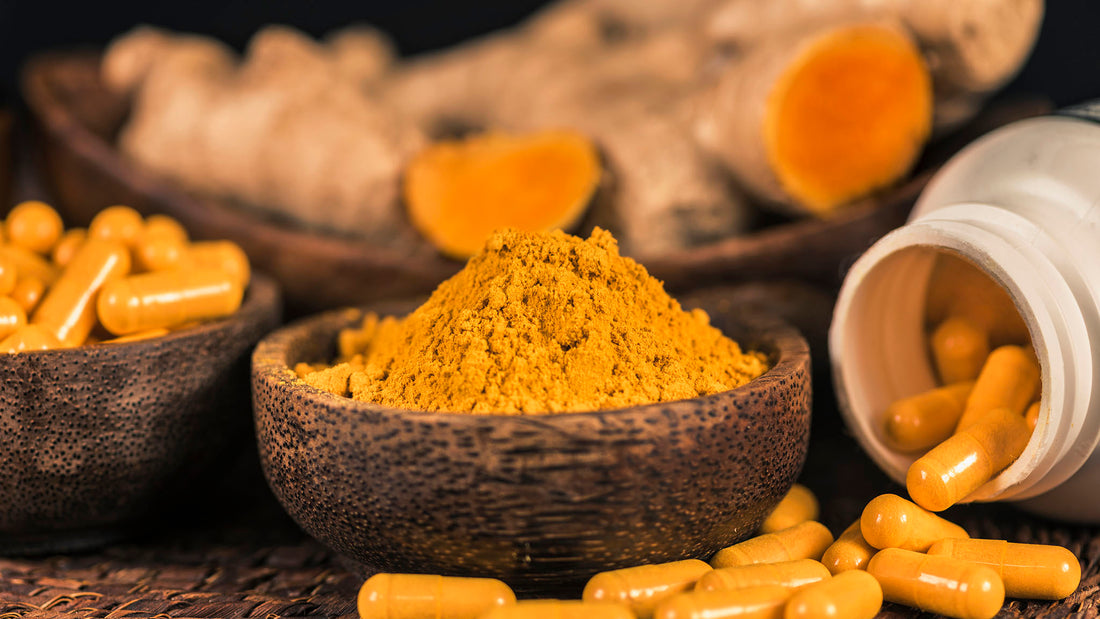Curcumin – An Important Antiviral For Your Supplement Routine
Since ancient times, humans have been dependent on plant-based medicines for the treatment of numerous ailments ranging from respiratory issues to skin conditions. Although recent times have seen a turn toward the use of synthetic medications, plants can often be a suitable alternative to address health issues and support optimal wellness due to their natural, holistic approach and minimal side effects.
Current concerns have prompted renewed interest in medicinal plants for immune support. But there are also a number of plants that have been widely studied for their antiviral effects. One such herb is curcumin, which is a key polyphenolic compound from the Indian spice turmeric (Curcuma longa), which is part of the ginger family. Curcumin has long been known for its medicinal properties first discovered in the Indian Avurvedic tradition and in Traditional Chinese Medicine. As consumers now recognize tumeric’s many health properties, it has become one of the best-selling herbal ingredients in the United States with sales of nearly $145 million in mainstream and natural retail outlets.[1]
Curcumin has been well studied for many therapeutic properties, which includes its anti-inflammatory antioxidant and antiviral effects and is touted for health benefits ranging from PMS to a hangover.* But given the ongoing search for preventive and therapeutic solutions for viral infections, curcumin’s antiviral properties may be especially intriguing. A 2018 study, for example, noted that curcumin’s role as an antiviral agent has been well studied for a number of viruses and that its positive effects outweigh its negative effects. Curcumin plays a role in targeting various cellular pathways to inhibit growth and replication of viruses, which may ultimately make it a candidate for an antiviral drug.[2]
Although there are still questions about how curcumin does this, the study suggested, it works because it targets critical steps of virus replication. “As a single unit, a virus cannot equip all the enzymes required for their replication. They commandeer cellular machinery for their efficient reproduction and metabolic processes. However, an antiviral agent must stop the viral growth in infected cells, without affecting normal cells.” Curcumin may prevent viral attachment and entry by abrogating the function of viral envelope proteins (see figure 1 below),[3]
Curcumin’s antiviral mechanism in host cells (Figure 1)

Source: Antiviral potential of curcumin. Journal of Functional Foods. 2018[/caption]
In other words, an antiviral must attack the virus’ replication cycle, which includes attachment/penetration of cells, uncoating, genome regulation, gene expression, assembly and release. Curcumin does this by targeting the viral entry or attacking the viral components essential for replication, the researchers noted.
That said, much more research is needed to understand curcumin’s role in prevention of viral infections and its support of overall health. What is well known, however, is that turmeric is generally recognized as safe (GRAS) by the U.S Food and Drug Administration. A healthy dose of up to 12 grams/day of curcumin is known to be safe for human consumption without causing any side effects.[4]
Choosing a curcumin formula
Given the importance of maintaining health and wellness these days, curcumin can be an important nutrient in your diet and supplement regimen. But there are some important things to know in choosing a curcumin supplement to ensure you get the maximum benefit from taking this nutrient. For example, choose a natural curcumin supplement that is verified for its efficacy, identify and purity. That’s important because growing demand for curcumin has prompted increasing adulteration of raw material with synthetic curcuminoid ingredients that mimic natural curcumin. The synthetic curcumin, made from petroleum-based toxic chemicals and residual impurities, has not been tested for safety or pharmacological activity. It is difficult to identify with common testing methods, so it is best to choose products that are verified with the 14 carbon test developed at the University of Georgia’s Center for Applied Isotope Studies, which is now the only test recommended.
In addition, look for a product that is prepared with top-to-bottom control from the extraction of the root and purification of the curcumin to final packing. Formulas made with a proprietary curcumin that contains 95% curcuminoids drawn from raw turmeric and processed with no unnecessary additives or risky excipients are also ideal.
Princeton Vitamin’s curcumin formula, Cucuzen®, is a good example of a product that meets all these specifications. It is prepared with top-to-bottom control from the root extraction and purification of curcumin to final packaging in our facility. It is made with a proprietary curcumin that contains 95% curcuminoids drawn from raw turmeric and processed with no unnecessary additives or risky excipients. And, it is tested for identity and purity using the 14 carbon method.
Although many questions have yet to be answered regarding curcumin’s antiviral properties, it is a safe and important nutrient to include in your daily diet and supplement routine.
Be well,
Mohamad Rafi Ph.D., founder of Princeton Vitamins
References
- Smith T et al. Herbal Supplement Sales in U.S. increase by 9.4% in 2018. HerbalGram issue 123. Sept. 2019.
- Mathew D, Hsu WL. Antiviral potential of curcumin. Journal of Functional Foods. 2018;40:692-699.
- Ibid.
- Gupta SC, Patchva S, Aggarwal BB. Therapeutic roles of curcumin. Lessons learned from clinical trials. AAPS Journal. 15(1):195-2018

